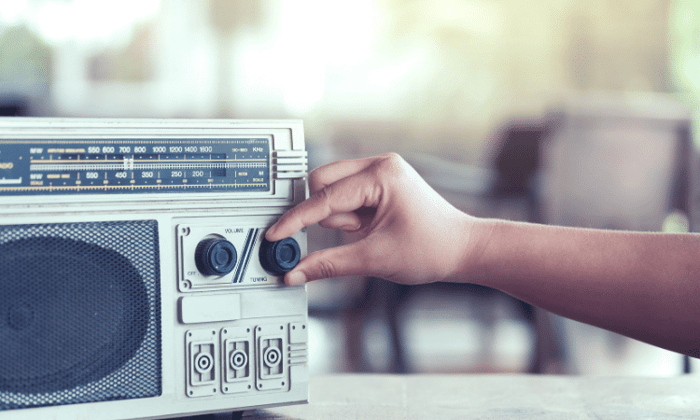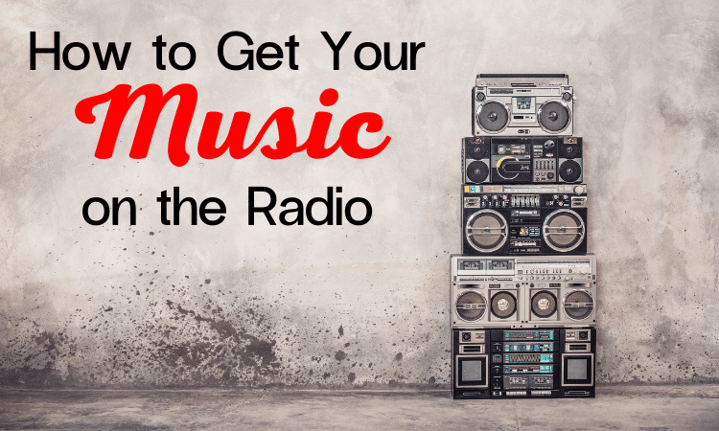Tips to Submit Your Song to a Radio Station
When it comes to new artists promoting their music, there is an abundance of options and opportunities available.
However, having a variety of options can be a little overwhelming and can make it difficult to find the best methods that suit your ambition, needs, and means.
We live in a world of instant gratification and music lovers can find a new song at pretty much any turn. That being said, getting your music played on the radio is still one of the most effective ways to get your music to the masses.
Up until very recently, having one of your songs played on the radio was a luxury, something that only artists signed to major labels benefited from.
However, times are certainly changing, and new alternatives are being put into place to encourage the discovery of new artists on the radio.
But radio airplay can still be tricky to secure, so you'll need to be patient and take the right steps.
So, what are the best ways to get your music on the radio?
We'll answer that question in the article below.
Table of Contents
Why is Radio Exposure Still Important?
The rise of social networks and streaming services have made promoting your music easier than ever, but also more complex than ever at the same time.
The music scene is a saturated market.
It's easy to get your music "out there" since availability is at an all-time high. Not to mention how simple it is to upload a track, but that also makes the industry incredibly competitive.
There are currently over 60,000 new songs released on Spotify every day, making it very hard to stand out from the crowd, especially if you don't have the finances for marketing or the endless free time for networking.

Admittedly, traditional media like radio has lost their allure over the years, and it's no longer a requirement to get your music on the radio to get your music out into the world.
But due to all of the competition on streaming sites, radio is still an excellent source of musical discovery.
Even today, almost half of new music discoveries are found on the radio, compared to 27% on streaming services. If you ask us, that's still pretty prominent!
So, let's dive into steps you can take to get your music on the radio.
How to Get Your Song on the Radio
Make Sure People Will Want to Listen to Your Song
Before you start pitching to radio stations, make sure you've invested in the songwriting, singing, instrumentation, production, and recording of your music.
Radio DJs, producers, and journalists are sent multiple songs every day for evaluation on whether or not the tracks can make it on their radio airplay lists. The production of your song needs to stand out.
Unless it's a super small radio station that you have prior connections with, a track with poor studio production doesn't stand a chance.
Select the Right Radio Stations

Don't just scroll through the dial of your radio and submit your track to every station you come across. You only want to reach out to stations that play the type of music you're trying to promote.
Keep in mind that there are two types of stations: non-commercial and commercial radio stations.
Getting your foot in the door of commercial radio channels is often much harder than connecting with non-commercial radio, but it's not impossible.
On commercial radio, the songs that get played are tested with real audiences before they are released to the public. DJs might not have any power over that process.
But, in small and medium-size commercial stations, radio hosts might have a say in what songs make it to their playlists.
If you're an independent artist early in your career, target non-commercial avenues like a college radio station, community, and other small stations first.
Once you've gained momentum from that strategy, you can start pitching to more commercial stations to get on their airplay lists.
Know Who to Approach

In the music industry, especially in radio, knowing which people you need to talk to goes a long way.
When targeting larger stations, you need to find the person's contact details in charge of selecting the tracks that get played. This might be one of their DJs, the station's producer, or one of their Music Directors.
When approaching smaller stations, they likely will not have a large staff, so any contact may do the trick.
Check out their website and social media platforms to find the contact details you need, or give them a call and ask for the person you need to speak to.
Some stations may only accept submissions from certain sources or a specific format. Do your research first to be sure you've already done things the right way before sending anything in.
Not following their preferred guidelines could get your song rejected before it's even listened to!
Respect the Radio Format
Another important factor that can maximize your chance of getting a song on the radio is optimizing your song's length.
Your track should be somewhere between 2:30 and 4:00 minutes long. If it's not, your chances of getting airplay will be severely limited.
Obviously, you shouldn't restrict your artistic creativity with every song, but keeping perspective on the specific track you wish to pitch to a radio station is important. A shorter, catchy song is your best bet.
If you have a longer song that you still want to hit the airwaves, it might be wise to create a "radio edit." This just means you should make a version of your song that will be suitable for radio airplay that respects the preferred format.
Quick note: Producing a radio edit is also a great idea if your song has a few moments of extreme profanity.
Provide Value
If you're a completely brand new artist, this may not apply to you...yet.
However, if you're pitching a song to a radio station and the song has great streaming numbers, you as an artist/band have a big following, or you've been gaining local buzz, let them know!
The music industry is an industry, after all. Yes, you want to gain listeners and notoriety from being on the radio, but that doesn't mean the value is a one-way street.
If you can throw out some numbers when you pitch your song (even if it's vanity metrics, like Instagram followers), it definitely could help. Just make sure you're always truthful and respectful when you pitch to a radio station.
Sell yourself, but don't be arrogant.
Hire a Radio Promoter
Your creative expertise revolves around creating music, so why not leave promotion, networking, and getting radio exposure to the radio experts?
A Radio Promoter is essentially a paid advocate for your music and the perfect middle-man, so to speak, to get your song on the radio. They will break down your song, discover its main appeal, and use that information (along with years of networking connections) to find the best station that matches your sound and style.
Yes, paying for a Radio Promoter can feel a little "commercialized," and potentially scary if you're a newer, independent artist with smaller financial flexibility. However, their connections are invaluable and can save you a lot of out reach, emails, rejection, and headaches.
The important factor to keep in mind is that if you are going to make an investment in yourself, you need to make sure that your music is up to par and completely dialed in.
If you're not sure you've hit that step, keep reading for a great opportunity.
Get Your Music on the Radio

You can't overlook the fact that your music has to sound like it belongs on the airwaves.
One of the best ways to ensure your music is topnotch is by attending an accredited music school like the Atlanta Institute of Music and Media.
AIMM has both on-campus and fully online programs that span various concentrations, such as music production, guitar, vocals, drums, bass, and keyboard.
You'll be in an immersive music atmosphere, and as an AVID Pro Tools Training Partner, you'll learn the perfect blend of music and technology. This gives you an advantage on both the instrumentation and production side of music.
Click below and discover how AIMM can benefit your music career today.











